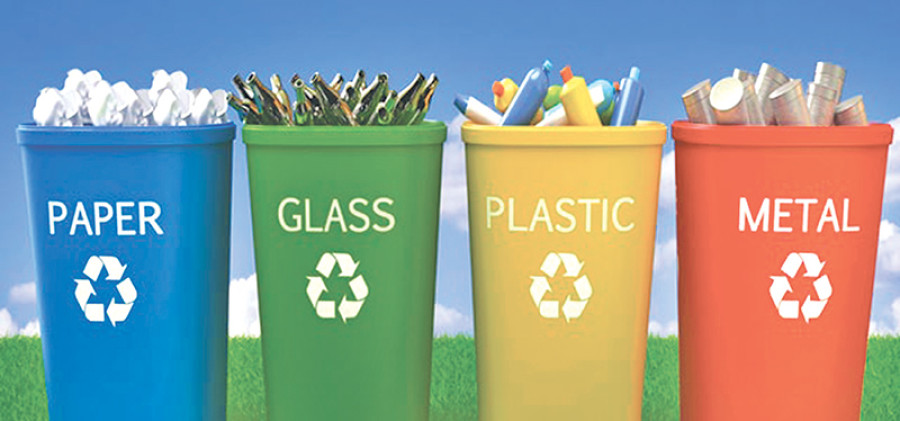Opinion
Living with rubbish
Garbage was not a problem to the villagers who were not offended by the sight of it
May is the peak time for climbers to make attempts on Everest. This year, 29 teams are aiming to achieve the ascent. Under the rules established by the Nepal government in 2014, each team member has to bring back at least 8 kg of rubbish that he or she has generated to prevent Everest from becoming the ‘highest waste tip in the world’. Everything we do, eat, drink or make produces rubbish. Plastic and rubbish pollution degrade the environment and our oceans, spoil tourist attractions and pose serious health hazards.
An awakening
In my travels over the last 10 years in Nepal, Malaysia, Indonesia, Australia, New Zealand and the UK, I have seen how people deal with rubbish. Most is swept up daily and put into plastic bags, which when full are placed in an area outside the house for later collection and disposal. In Indonesia, where I lived for a month in 2008 in a remote village in the dry south of the island of Sulawesi, I collected the rubbish into plastic bags and stored these against an external wall. By the next day, these bags had been torn open by some animal and the contents scattered again, by the animal and the wind, across the ground.
Because I had concentrated the waste into a few plastic bags, the problem was worse than if I had done nothing at all. I was confronted by deep environmental and philosophical choices: Do I bury the waste, leave it as it is on the ground or burn it? I decided that burning the rubbish was the least of three evils. But this taught me a valuable lesson. Because rubbish was not a problem to the local villagers, who lived with it daily and were not offended by the sight of it, I came to think that waste and rubbish disposal was an attitude of the mind and a Western concept, that aesthetics and public health were not an issue for the locals, so why should it be for me?
The choices
The choices for waste disposal today are basically the same as those I faced in my isolated, remote village in Indonesia in 2008 —bury, burn or leave. Bury, or landfill, is the preferred option for many large cities, including Kathmandu. The problem is that landfill requires large areas of suitable land near a city, causes disruption and anger to local inhabitants, and can cause health hazards and wild animal encroachment. Burn, or incineration, is another option used. There is still the requirement for waste to be transported to an out-of-town site, where the incinerator can generate heat to power electricity, and emissions have to be controlled with expensive equipment and technology to prevent toxic micro-organisms from entering the atmosphere.
In Nepal, I have participated in two major environmental programmes to address the problem of waste disposal. In 2008, I wrote a report on the effects of tourism on biodiversity in Chitwan National Park. This noted the efforts of the concerned local people to combat waste created by the tourism and hotel industry by organising rubbish collection points, and trying to establish a waste sorting and recycling centre where waste could be sorted into glass, metal and compostable material. These efforts are on-going.
The second programme I was involved in was the Bagmati River Clean Up Operation where I worked with a team from the Global Peace Foundation Nepal to remove plastic bags and much other rubbish from Kathmandu’s major river.
The way forward
Education is the key to combating environmental degradation. It a necessary to educate people about global warming caused by the burning of carbon and CO2 emissions, reducing emissions, and the need to clear up and dispose of waste safely. Families should be taught about food composting, growing organic food and using less packaging.
Pressure should be brought to bear by governments on manufacturers, designers and plastic engineers to manufacture more durable products and make them thicker or with stronger polymers so that they do not wear out within six months. The advantages of this are twofold: One, the better-made products will not be discarded so quickly, and two, the slight extra cost of the product will marginally affect the purchasing decisions of millions of people who may, therefore, not buy a product they may have bought if cheaper.
The food and cosmetics industries also must reduce the amount of unnecessary wrapping and packaging, if necessary by law. Governments must now act to prevent the plastic waste scourge by introducing taxes and regulations on plastic and wrapping use, and promoting advertising campaigns to recycle waste and home-compost food waste, and encourage scientists to look for alternative materials. Technology is all the time developing new machines to collect, sort and recycle waste. Plastic can be recycled and moulded to produce panels for home building, and houses can be insulated with discarded plastic components.
Taylor is an occasional volunteer in environmental conservation




 9.89°C Kathmandu
9.89°C Kathmandu









